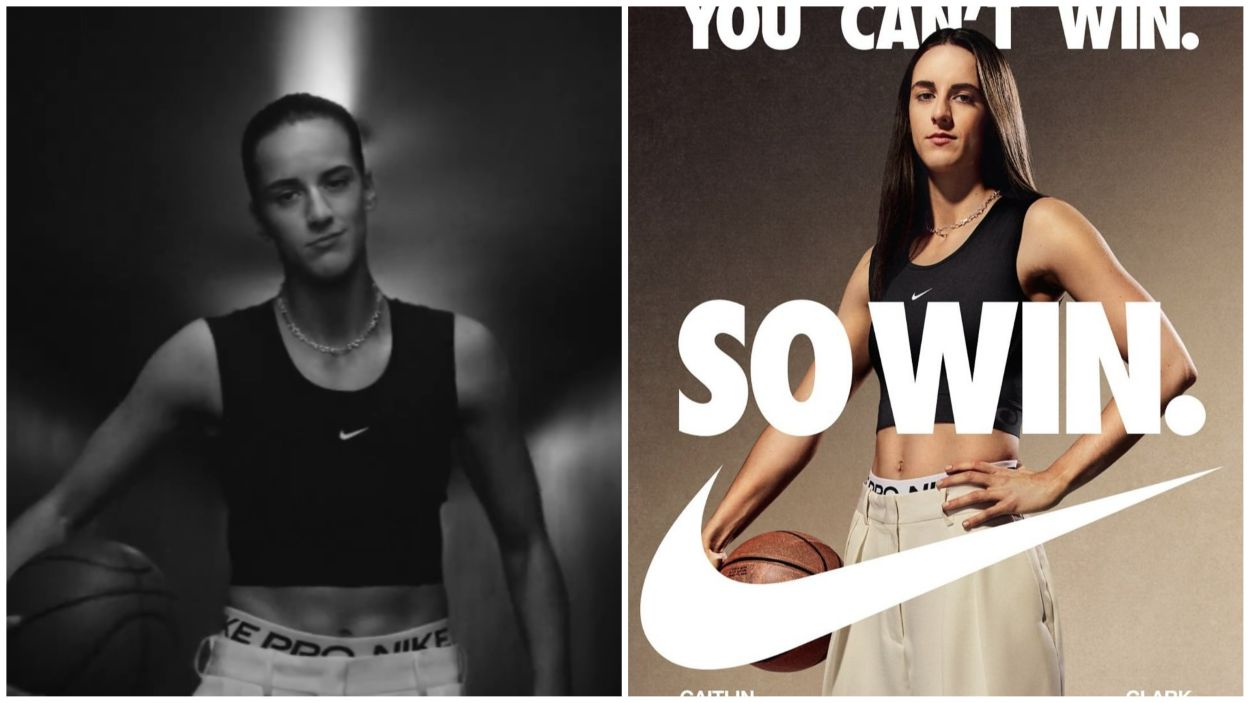Nike’s latest Super Bowl commercial, “So Win,” has sparked a vigorous social media debate.
The campaign aims to highlight the trials female athletes endure, featuring prominent athletes like WNBA stars Caitlin Clark and A’ja Wilson, gymnast Jordan Chiles, and sprinter Sha’Carri Richardson. However, the commercial has received mixed reviews, with some viewers celebrating its empowering message while others criticize it as a misstep.
The advertisement, narrated by rapper Doechii, delivers a controversial yet bold message: “Whatever you do, you can’t win. So win.” This was intended to underscore the resilience required in women’s sports, but the message didn’t resonate with all audiences. While the ad quickly became the most-watched Super Bowl commercial on Nike’s Instagram, garnering over 66 million views, it also attracted significant criticism.
Critics like Jennifer Sey, CEO of XX-XY Athletics, labelled the ad “inauthentic and desperate,” criticizing it for its tone, which some found more discouraging than inspiring. Others, including The Scoop, echoed the sentiment, dismissing the message as promoting a “defeatist mentality” and suggesting a return to Nike’s iconic “Just Do It” slogan.
Discussion about the ad extended to popular platforms and podcasts. On The Ringer WNBA Show, Callie Fin criticized Nike’s approach as “lazy” and “shallow,” comparing it unfavourably to America Ferrera’s impactful Barbie monologue. She suggested that Nike missed an opportunity to delve into the unique journeys of athletes like Clark and Wilson to tell a more poignant story.
After nearly 30 years on the sidelines, Nike took center stage with a #SuperBowl ad featuring an all-star lineup of trailblazing athletes—led by WNBA phenom Caitlin Clark—as it looks to capitalize on the growing popularity of women’s sports https://t.co/11jBt1yJkD
— The Wall Street Journal (@WSJ) February 10, 2025Despite the backlash, some, including WNBA legend Lisa Leslie, hailed the commercial as a standout Super Bowl ad. Nike’s substantial $16 million investment in the ad marks a strategic pivot under new CEO Elliott Hill, who aims to refocus the brand on its sports roots amid declining revenues.
Caitlin Clark’s involvement in the commercial continues her rising prominence in women’s basketball, highlighted by her $28 million endorsement deal and upcoming signature Nike sneakers.
The discussion around the commercial also broadens with the Obama family’s engagement. Reports of one of Barack Obama’s daughters directing a more personalized ad for A’ja Wilson that focuses on her hometown suggest a storytelling depth that some critics found lacking in the Super Bowl spot.
The controversy surrounding Nike’s commercial underscores the complex dynamics of marketing female athletes and the expectations placed on them. It raises critical questions about the effectiveness of such campaigns and whether they truly honour the athletes’ experiences or exploit them for corporate gain.
As Nike navigates this backlash, the broader conversation it has ignited about representation and marketing in women’s sports continues to evolve, spotlighting the need for more thoughtful and genuine approaches.






